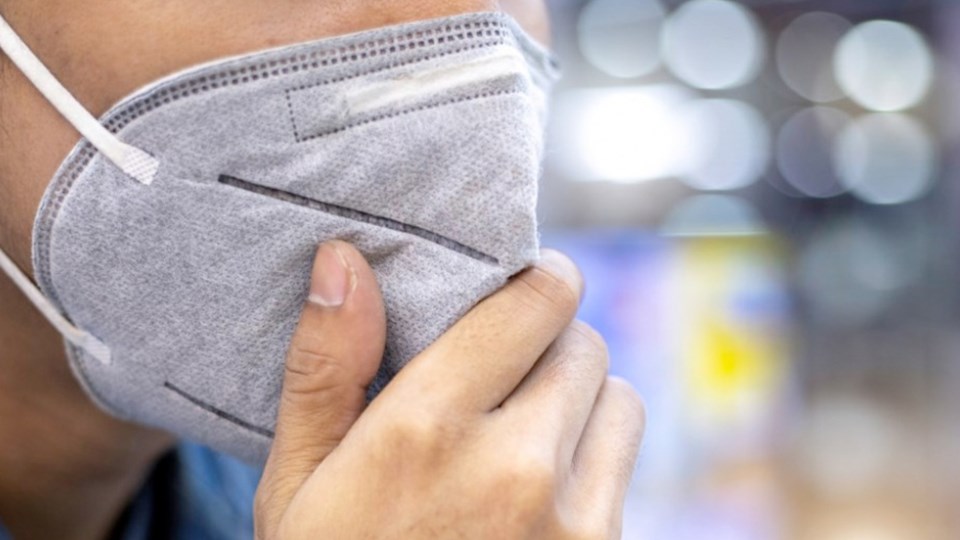April 2022 could have been a special month for Canadians.
COVID-19 restrictions were no longer in place and an Easter celebration loomed as a great opportunity to see family and friends. Still, when Research Co. and Glacier Media asked about our perceptions and behaviour, the numbers did not outline a public that is particularly confident about the present or the future.
Over the past four weeks, there has been no change in the way Canadians look at the pandemic. More than four in five (82 per cent, up one point since March) continue to consider COVID-19 as a real threat. One question where we do see some movement is related to what lies ahead. A month ago, 72 per cent of Canadians thought that the worst of COVID-19 was “behind us.” When we asked last weekend, the proportion fell by 10 points to 62 per cent.
A majority of Canadians continue to expect that we will not go back to a life of lockdowns and “vaccine passports.” This month, Canadians aged 18 to 34 are slightly more likely to think that the situation may worsen (25 per cent) than their counterparts aged 35 to 54 (22 per cent) and aged 55 and over (23 per cent).
Also of note, the proportion of Canadians who feel “very anxious” or “moderately anxious” about COVID-19 restrictions and mandates being lifted in their community increased from 52 per cent to 56 per cent. British Columbia is home to the highest proportion of residents who are uneasy about the current state of affairs (63 per cent) while Quebec is at the bottom (50 per cent).
Some of our behaviours are undergoing a shift, while others are stagnant. Three in five Canadians (60 per cent) plan to wear a mask or face covering when entering an indoor premise in the next two weeks, down five points since March. In addition, 45 per cent (unchanged) say they will carry on wearing a mask or face covering every time they leave their home.
The past four weeks did not make Canadians more adventurous. Compared to last month. similar proportions are considering visits to relatives or friends in person (58 per cent, unchanged), the theatre or cinema (22 per cent, up one point), a concert (11 per cent, unchanged) or a live sporting event (11 per cent, unchanged) in the next fortnight. More than two in five plan to have lunch (43 per cent, up four points) or dinner (44 per cent, up one point) at a sit-down restaurant.
The numbers are also low for trips, with 22 per cent of Canadians saying they plan to travel by car for an overnight stay in the next two weeks and 13 per cent willing to travel by airplane for the same reason.
One particular issue where the numbers are no longer extraordinary is the performance of elected officials. This month, 57 per cent of Canadians are satisfied with the way the federal government has managed the pandemic, down four points since March. With the glaring exception of Alberta, where only 42 per cent of residents are content with Ottawa on this file, every other region of Canada sees majorities endorsing the actions of the federal government, albeit at a lower level than in 2020.
Municipal governments improved their standing by four points, with 60 per cent of Canadians saying they are satisfied with the way they have handled COVID-19. Some provincial administrations were not as lucky. The satisfaction rating fell slightly in British Columbia (61 per cent, down to points) and in Quebec (59 per cent, down four points).
In Ontario, where a provincial election campaign is just weeks away, 61 per cent of residents are satisfied with how the pandemic has been managed, up four points since March. Alberta also saw significant gains, going from 37 per cent in March to 43 per cent in April – still the lowest level among Canada’s four most populous provinces.
At least three in five Canadians are satisfied with the performance of the federal chief public health officer (61 per cent, down two points) and their provincial health officer or chief medical officer (60 per cent, down one point). On a regional basis, majorities of British Columbians (63 per cent, unchanged), Quebecers (59 per cent, down four points) and Ontarians (also 59 per cent, down two points) hold their health officer or chief medical officers in high regard. The exception is Alberta, where the numbers dropped by four points to 49 per cent.
The government of the United Kingdom has announced a public inquiry into the COVID-19 pandemic. When we asked Canadians about taking a similar approach to gauge the preparedness, public health response and economic response from various levels of government, the response was eye-catching. More than three in five (61 per cent) believe a public inquiry into pandemic management is warranted for municipalities, and larger proportions feel the same way about provincial administrations (64 per cent) and the federal government (66 per cent).
Views about provincial inquiries are very similar in the four most populous provinces, with support rising from 61 per cent in Alberta and British Columbia, to 64 per cent in Quebec and to 68 per cent in Ontario.
This month’s look at COVID-19 in Canada provides some sobering numbers. Across the country, the notion of a public inquiry is supported by a majority of residents in all regions. Anxiety is rising, government satisfaction is falling, and Canadians are not showing an immense desire to visit venues or go places. For a significant proportion of the country’s residents, the pandemic has not ended.
Mario Canseco is president of Research Co.
Results are based on an online study conducted from April 16 to April 18, 2022, among 1,000 adults in Canada. The data has been statistically weighted according to Canadian census figures for age, gender and region. The margin of error, which measures sample variability, is plus or minus 3.1 percentage points, 19 times out of 20.




